
1,837 Seconds of Humor is the debut album of Ray Stevens, released in 1962. The front of the album shows a sheik that rides a camel, which is a reference to Stevens' song "Ahab the Arab." All of the material on the album was written by Ray Stevens and published by Lowery Music Co., Inc. (BMI). The back of the album cover contains an essay of biographical information of Stevens from his youth in his hometown of Clarkdale, Georgia to the time of this album's release and gives brief descriptions of all the songs on the album. Four singles were lifted from the album: "Jeremiah Peabody's Poly Unsaturated Quick Dissolving Fast Acting Pleasant Tasting Green and Purple Pills", "Scratch My Back ", "Ahab the Arab", and "Further More."

Daniel Earl Hartman was an American rock musician, multi-instrumentalist, singer, and songwriter and original frontman for several bands, including The Soploids, Mak and the Turnarounds, Our Wringer, Last Wing, and Orion. Among songs he wrote and recorded were "Free Ride" as a member of the Edgar Winter Group, and the solo hits "Relight My Fire", "Instant Replay", "I Can Dream About You", "We Are the Young" and "Second Nature". "I Can Dream About You", his most successful song, reached No. 6 on the Billboard Hot 100 in 1984 and No. 12 on the UK Singles Chart in 1985. The James Brown song "Living in America", which Hartman co-wrote and produced, reached No. 4 on March 1, 1986.

Joshua Otis Turner is an American country and gospel singer and songwriter. In 2003, he signed to MCA Nashville Records. That same year, his debut album's title track, "Long Black Train", was his breakthrough single release. His second album, Your Man (2006) accounted for his first two No. 1 hits, "Your Man" and "Would You Go with Me", while 2007's Everything Is Fine included a No. 2 hit, "Firecracker". Haywire, released in 2010, produced his biggest hit, the four-week No. 1 hit "Why Don't We Just Dance" and another No. 1 song, "All Over Me". It was followed by Punching Bag (2012), whose lead-off single, "Time Is Love", was the biggest country hit of 2012 according to Billboard Year-End.

"You Don't Know Me" is a song written by Eddy Arnold and Cindy Walker in 1955. "You Don't Know Me" was first recorded by Arnold that year and released as a single on April 21, 1956, on RCA Victor. The best-selling version of the song is by Ray Charles, who took it to number 2 on the Billboard Hot 100 chart in 1962, after releasing the song on his number 1 album Modern Sounds in Country and Western Music. The first version of the song to make the Billboard charts was by Jerry Vale in 1956, peaking at number 14 on the pop chart. Arnold's version charted two months later, released as an RCA Victor single, 47–6502, backed with "The Rockin' Mockin' Bird", which reached number 10 on the Billboard country chart. Cash Box magazine, which combined all best-selling versions at one position, included a version by Carmen McRae that never appeared in the Billboard Top 100 Sides listing.

"Heat Wave" is a 1963 song written by the Holland–Dozier–Holland songwriting team. It was first made popular by the Motown vocal group Martha and the Vandellas. Released as a 45 rpm single on July 9, 1963, on the Motown subsidiary Gordy label, it hit number one on the Billboard Hot R&B chart—where it stayed for four weeks—and peaking at number 4 on the Billboard Hot 100.

New Harvest...First Gathering is the eighteenth solo studio album by American entertainer Dolly Parton. It was released on February 14, 1977, by RCA Victor. It is significant for being Parton's first self-produced album, as well as her first effort aimed specifically at the pop charts.

"You Send Me" is a song written and originally recorded by American singer Sam Cooke, released as a single in 1957 by Keen Records. Produced by Bumps Blackwell and arranged and conducted by René Hall. The song, Cooke's debut single, was a massive commercial success, becoming a No. 1 hit on both Billboard's Rhythm & Blues Records chart and the Billboard Hot 100.
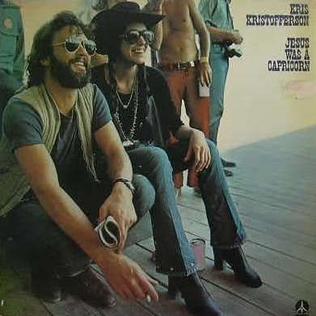
Jesus Was a Capricorn is the fourth album by Kris Kristofferson, released in 1972 on Monument Records. The album cover pictures Kristofferson and his soon-to-be wife Rita Coolidge. "Why Me" reached #1 on the Country singles charts.

Wanna Be Your Joe is the ninth studio album released from country music artist Billy Ray Cyrus. Released on July 17, 2006 on New Door Records and UMe, it was Cyrus' first country album since 2000's Southern Rain. It is also his first album of non-gospel music in three years. From Billy Ray's exposure on Hannah Montana, the album debuted and peaked at number 24 on the U.S. Billboard Top Country Albums chart, number 113 on the Billboard 200 and number 118 on the Billboard Top Comprehensive Albums. The album sold well, but no hit single was released. The title track and "I Want My Mullet Back" were released as singles, but both failed to chart on the U.S. Billboard Hot Country Songs chart.

"(Your Love Keeps Lifting Me) Higher and Higher" is an R&B song written by Gary Jackson, Raynard Miner, and Carl Smith. It was recorded by Jackie Wilson for his album Higher and Higher (1967), produced by Carl Davis, and became a Top 10 pop and number one R&B hit.

From Nashville to Memphis: The Essential '60s Masters is a five-disc box set compilation of studio master recordings by American singer and musician Elvis Presley during the decade of the 1960s; it was released in 1993 on RCA Records, catalogue number 66160-2. In its initial long-box release, it included a set of collectable stamps duplicating the record jackets of every Presley LP on RCA Victor, and those of the singles pertinent to this box set. The set also includes a booklet with an extensive session list and discography, as well as a lengthy essay by Peter Guralnick. It was certified Gold by the RIAA on November 30, 1993, and Platinum on January 6, 2004. This set followed an exhaustive box set of Presley's 1950s output and was followed by a more selective box set of his work in the 1970s.
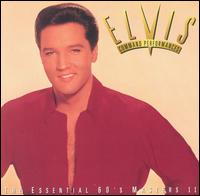
Command Performances: The Essential 60s Masters II is a two-disc compilation of studio master recordings by American singer and musician Elvis Presley during the decade of the 1960s, released in 1995 on RCA Records, catalogue number 66601-2. It also includes a booklet with session details and an essay by Susan M. Doll.
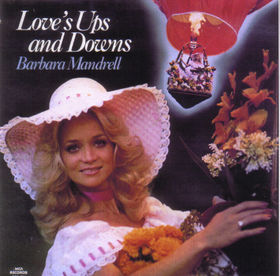
Love's Ups and Downs is the seventh solo studio album by the American country music singer Barbara Mandrell, released in November 1977.

Ain't That Good News is the eleventh and final studio album by American R&B and soul singer-songwriter Sam Cooke, released mid-February 1964, on RCA Victor Records, in both mono and stereo, LPM 2899 and LSP 2899. Recording sessions for the album took place at RCA Victor's Music Center of the World Studio in February and December 1963 and January 1964. The cover photo was taken by American photographer Wallace Seawell. Ain't That Good News was the final studio album to be issued during Cooke's lifetime, before his death at the age of 33. With the exception of "Another Saturday Night", which had been released as a single early in the previous year, Ain't That Good News comprised the first material that Cooke had recorded in the six months following the drowning death of his 18-month-old son Vincent.
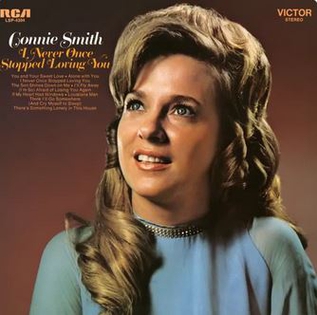
I Never Once Stopped Loving You is a fourteenth solo studio album by American country singer Connie Smith. It was released in September 1970 on RCA Victor and contained ten tracks. The collection mixed original material with covers of previously-recorded songs. Three singles were included on the album: "You and Your Sweet Love", the title track and "Louisiana Man". Both "You and Your Sweet Love" and the title track reached the top ten on the American country songs chart in 1970. The album itself charted in the top 20 of the American country LP's survey. Billboard magazine gave the LP a positive response following its original release.

Even Stevens was Ray Stevens' third studio album, released in 1968. It was also his first album for Monument Records as well as his first studio album in five years, though he previously released four singles for Monument, starting with "ABC" in 1965. Before the release of this album, Stevens concentrated on writing and producing songs for other artists.
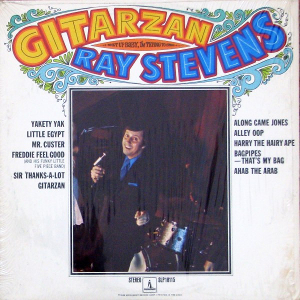
Gitarzan was Ray Stevens' fourth studio album, released in 1969, as well as his second for Monument Records. Unlike his previous album, Even Stevens, this album is completely in the genres of novelty and comedy. Although this is a true studio album, all of the songs are overdubbed with cheering and applauding of an audience to provide the feeling of a live album. Contents include three of the Coasters' hits, "Mr. Custer," and "Alley Oop." The album also contains re-recordings of his two novelty hits, "Harry the Hairy Ape" and "Ahab the Arab." "Freddie Feelgood " makes its first appearance on an album but is overdubbed with audience noises for this album.

Unreal!!! was the seventh studio album of Ray Stevens and his second for Barnaby Records, released in 1970. Two singles were lifted from the album and were moderately successful on the Hot 100 pop singles chart. Each single reached the Top-20 on the Billboard Adult-Contemporary chart, indicating that Stevens' appeal, even as early as 1970, lay with the adult music buyers rather than the kids and teenagers. All but two of the tracks were written by Stevens himself, with one of the others, "Talking," being written by Stevens's brother, John Ragsdale.

Misty was Ray Stevens' twelfth studio album as well as being his seventh and final for Barnaby Records. It was released in 1975. This album contains primarily cover versions of various songs that were popular from the 1920s to the 1950s, though there are two original songs for the album as well. Four singles were lifted from the album: the title track, "Indian Love Call," "Young Love," and "Lady of Spain".
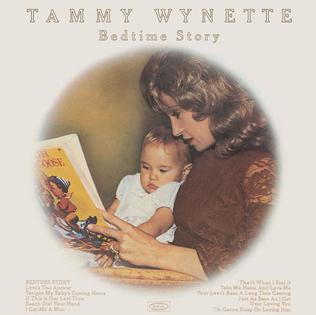
Bedtime Story is a studio album by American country artist, Tammy Wynette. It was released in March 1972 via Epic Records and contained 11 tracks. The disc featured both new recordings and cover tunes. Two singles were included: title track and "Reach Out Your Hand". Both made top positions on the North American country charts in 1972. The album itself reached the top ten of the American country albums chart following its release.




















